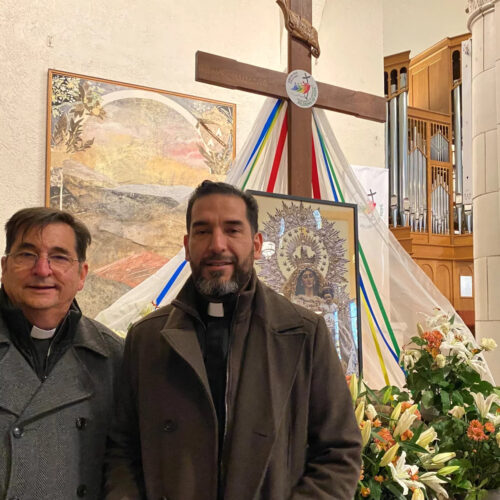
Remember Me: The Oscars And ‘Coco’ Remind Of Northwest’s Ties To Immigration Realities
With its rich characters, vivid colors and moving songs, “Coco” is a groundbreaking film. Audiences and critics are raving, calling it a “love-letter to Mexico.”
The 2017 Disney-Pixar feature is a magical adventure through Dia de los Muertos, the Latin American holiday largely tied to Mexico and its diaspora, that celebrates deceased loved ones and even death itself.
And on Sunday, “Coco” received well-deserved accolades at the 90th Academy Awards. The film won best animated feature film and best original song. In January, the film also took home the Golden Globe for best animated film.
Taking home two Oscars was a powerful ending for a team that worked on the film for over six years. It’s also the rare moment where an all-Latino cast had access to a nine-figure budget. For this and many other reasons, “Coco” has been lauded for its authentic portrayal of Mexican families and the cultural value of their traditions.
But what is too easily forgotten is that between the sweet lines of love letters, a melancholic grief exists. Beyond the bold colors and songs of a lively underworld lies the fragile relationship between the United States and Mexico.
A relationship where immigration, poverty and death remain some of the most painful and intertwined truths.
In Washington, that fracture is visible. Central Washington has the highest populations of Latino and Hispanic people. It’s not a coincidence. Immigrants power agriculture in the region, from early spring pruning all the way to the fall harvest. And in every town you see the little colorful corner stores, complete with Mexican candy and the necessary phone calling cards that connect us to relatives in our home countries.
For my family, it meant my Spanish-speaking parents went to a theater for the first time in over 20 years to see “Coco.”And for the first time, the movie was made accessible to them in their own primary language. Not with subtitles or with poor dubbing. It was actual Latino actors speaking Spanish with real music, art and nuance portraying a real Mexican family.
The characters looked like my sisters, like me, like my six-year-old nephew.
And that was a powerful moment.
My entire family had tears in their eyes. Even my proud father with weathered hands who’s worked agricultural fields for decades had a tear to hide. This man who has dealt with immigration, poverty, death and never once blinked, now found a moment of solace where he, too, could mourn. My mother who hasn’t been home to Mexico in 24 years found herself thinking about her own father — my grandfather — Adrian Carbajal Lagunas.
He died my senior year in college. This man, the last immediate family we had left connecting us to our homeland, was laid to rest without us. Because of our immigration status, we couldn’t attend the funeral. If we did choose to attend that would mean having to say goodbye to our family in the U.S., possibly forever. Between one world and the other, always longing to be authentically in both. That’s the reality of this life.
For us, Dia de los Muertos is simply the day we have to imagine our dead. They are a border removed, a literal wall in the way of grief, mourning and celebration.
My family has waited for a film like “Coco” their entire lives.
But even in the film, the plot reminds us that borders and immigration systems will continue to haunt us even in death.
Esmy Jimenez is a bilingual reporter for Northwest Public Broadcasting covering the people, culture and landscapes of Central Washington and the Yakima Valley. On Twitter: @esmyjimenez
Related Stories:

Immigration enforcement concerns cause mixed attendance trends in North Central WA schools
Eastmont Junior High School students make their way past the 800 wing on the way to their second period in East Wenatchee. (Credit: Jacob Ford / Wenatchee World) Listen (Runtime

These churches offer shelter and sanctuary to vulnerable migrants. Here’s why
Bishop Joseph Tyson (left) and the Rev. Jesús Mariscal (right) of the Yakima Diocese worry about how their parishioners will cope with broad changes to immigration policy, which have had

Lawsuits draw attention to role of local authorities in enforcing federal immigration policy
Two lawsuits against the Adams County Sheriff’s Office have drawn attention to the role of state and local authorities in enforcing federal immigration laws.















